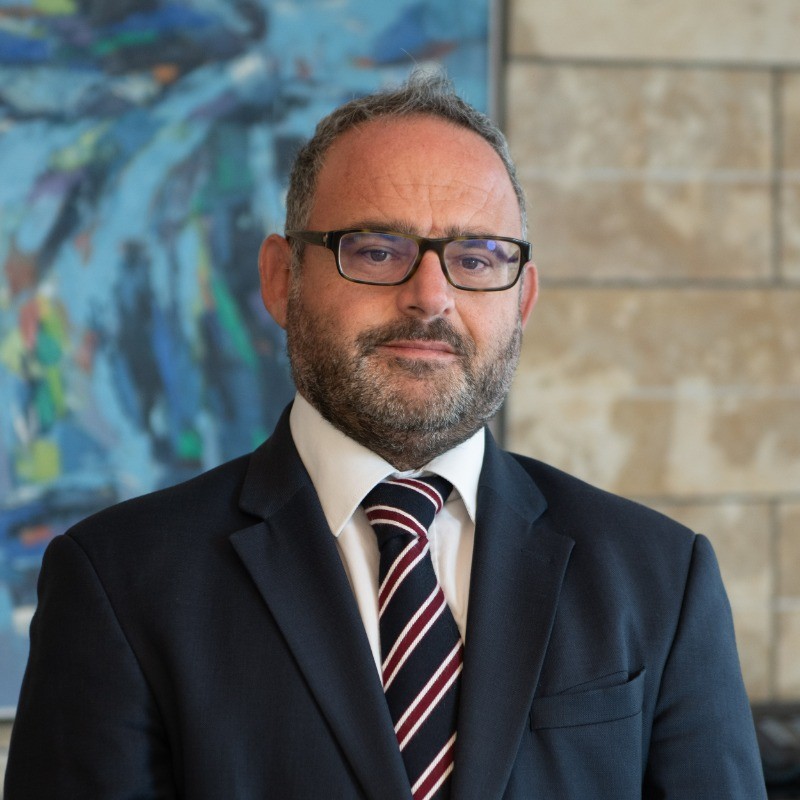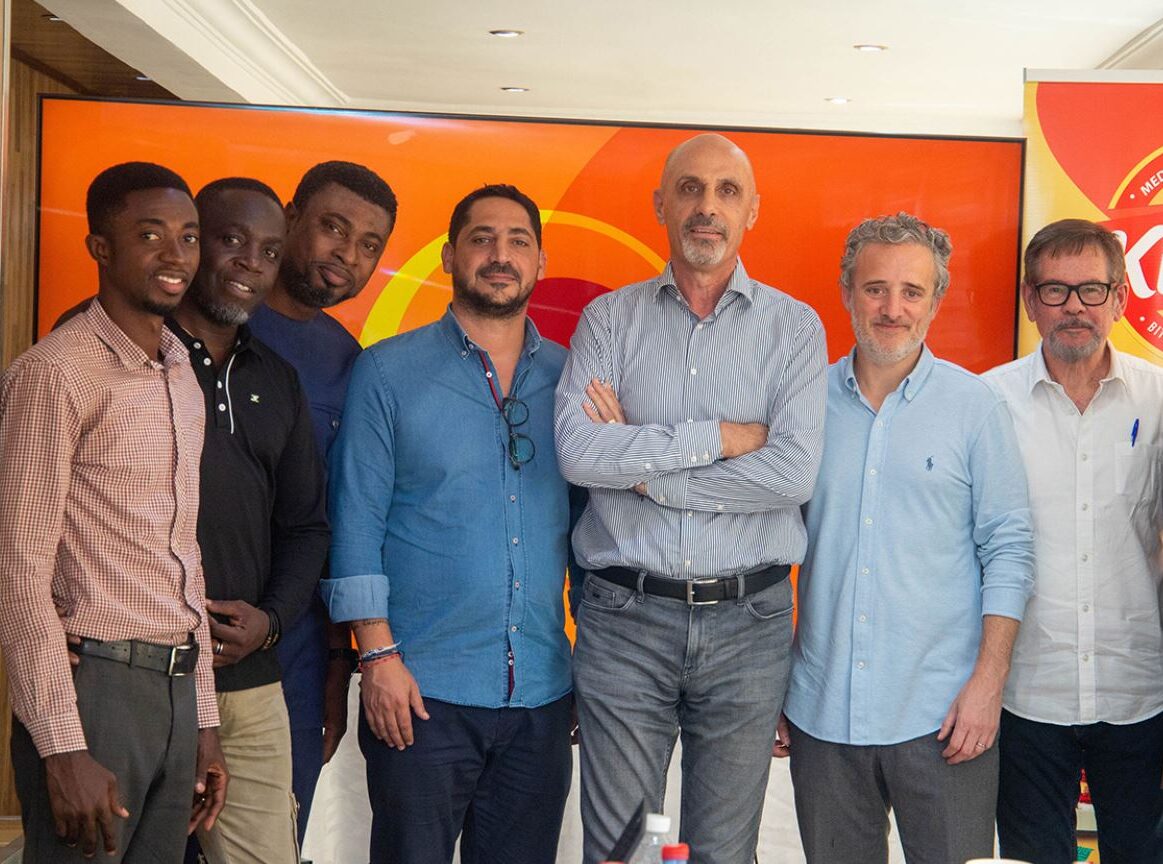Despite Malta’s small size, its connections to the global market will allow the island, in 2023, to maintain a steady course, Steve Mercieca contends. “We are Maltese, but we are also European. We live in a connected world. Historically, Malta has always performed well in comparison to other countries in challenging times and I am confident that we will manage through the next 18 months, which are believed will be the most challenging, especially with the fluidity of the Russian invasion of Ukraine,” he says.
His comments were featured as part of Business Now Winter 2022/2023 edition’s cover story, which seeks to tackle the impossible: predicting what will happen in 2023.
This is a test of resilience, he continues, and “Malta has a strong track record on the matter. I believe the key is not to be complacent or underestimate the situation,” he says. Moreover, it’s imperative “to focus on what’s within our control and what isn’t. Understanding that a period of additional grit and determination is heading our way, as well as comprehending the need for making smarter choices, is one of those things within our control.
In addition, Mr Mercieca asserts that, if various stakeholders from diverse parts of the Maltese economy come together, the island “has a chance to once again outshine larger countries in navigating through these tempestuous times.” This needs to be coupled with “a stronger stand on the environment, improved infrastructure, and further digitisation to reduce bureaucracy,” so that Malta will “attract stronger talent, which usually brings along higher salaries which are then consumed in the economy. This will also result in the Maltese upping the game on education as well as research and development, which will benefit current and future generations.” Indeed, improved employment opportunities for locals and expats create a multiplier effect, such as the need for better quality rentals, an increase in buy-to-let properties and improved design in construction.”
However, this vision must, necessarily, come with an awareness of the current context. Echoing other business leaders’ sentiments, Mr Mercieca points to the fallout from the COVID-19 pandemic and recent geopolitical conflicts as factors impacting the current economic and business landscape.
Indeed, in 2022, “following an initial shock to the real estate market during the pandemic, careful planning and fiscal incentives helped this market bounce back to the extent that it exceeded pre-COVID performance levels. This came as a breath of fresh air, considering that real estate agents did not make the cut in receiving individual support (wage supplement) from Government. However, we’ve always been an industry of hard workers and hustlers, so when the incentives were presented to us, we worked harder to recuperate the lost ground,” he explains.
Unfortunately, as the world emerged from the crisis, the post-pandemic challenges which arose hit the bottom line. “We started to feel the pressures the pandemic left behind on an international level and soaring prices. If this wasn’t sufficient, the war in Ukraine brought along new issues. The cost of raw materials shot up and disposable incomes felt the crunch.”
These conditions impacted Mr Mercieca’s business portfolio, due to the effect on his staff, and on prospective business from abroad. “These resulted in a slower-than-average sales level in real estate, which in turn affected my team. Needless to say, the international climate and financial challenges left people mentally tired which required more physical effort to get things done. Thankfully, Malta’s extra boost of sunshine and sociable life helped with softening the blow.”
Looking to 2023, inflation and supply chain issues will present difficulties for real estate businesses on the island, which will be compounded by Malta’s “infamously slow average rate of completing construction work.” Elaborating on the difficulties to keep the market buoyant, Mr Mercieca says that “the average cost of raw materials in the construction industry rose by 20 to 30 per cent. If you also take into account the inflation rate of other goods, this left a lot of people out of pocket. And, despite Malta’s inflation rate being among the lowest in the EU, salaries did not catch up with these increases. This impacts people’s affordability and disposable income, which is the main determinant factor for banks to approve credit.” These factors will result in fewer prospective buyers being able to complete their property purchases, he explains.
Within this context, Mr Mercieca’s businesses will go back to basics, by ensuring that diversity, innovation and purposefulness drive the decisions of upper management.
“More than ever, observing the changing landscape and how people, including our clients, are responding to it is essential. Continuously, the role that data plays in our decisions is increasing. This is accentuated by the fact that people need us to be more efficient, understand their needs faster and be available to fit into their busy lives, possibly more technologically than before.
As a result, Mr Mercieca is a firm proponent of PropTech (property technology), that is, the application of information technology to the real estate industry. “The market is changing. We must understand it. Our clients and their needs are changing. We must understand it. Society is changing. We must understand it. Our relationship with our team is changing. We must understand it. Whilst cultivating what is within the box, we must also make decisions which are innovative, diverse and purposeful.” By utilising the power of data and technology, Mr Mercieca hopes to achieve this.
In 2023, this will be coupled with a focus on the human capital which comprises his business. “I’m all for reports and research and analysis, but numbers don’t mean much if we are disconnected from the ones to contribute to those figures. No one is connected to the market and to our clients as much as our property specialists and administration team. Circular, versus vertical, decisions continue to be the best way forward. Listening more and doing more, based on what we heard, is surely a key to success. If you really want to know the market and know your clients, feel the pulse of your people. That’s what we plan to do,” he concludes.
Click here to read Malta Marriott Hotel & Spa General Manager Alex Incorvaja’s outlook for 2023 as part of the same Business Now magazine cover story
Click here to read what Farsons Group CEO Norman Aquilina, who was also featured, has to say about what’s in store, particularly for the manufacturing sector
Here, you’ll find insights from BRND WGN Founder and CEO, Peter Grech
And finally, here you will find the insights of Claire Zammit Xuereb Hospitality and Care Director for AX Group
This feature was first carried in the Business Now Winter 2022/2023 edition. Business Now magazine is the sister brand to BusinessNow.mt, both produced by Content House Group
We are ‘sharing a piece of Maltese heritage with West Africa’ – Farsons Deputy CEO
Kinnie is now also manufactured in Ghana.
Businessman Jean Paul Busuttil murdered in Bidnija
He was the Founder of Luxury Living Technologies plc, listed on the Malta Stock Exchange.
Vogue US Editor-in-Chief Anna Wintour steps down, leaving a playbook for leaders
Stylish, direct and fierce.
‘Today, there is no place for management by diktat’ – Malta Development Bank outgoing CEO
Paul V. Azzopardi reflects on his five years at the Malta Development Bank, emphasising teamwork, institutional independence, and values-driven leadership.









